Posts Tagged ‘Joanne Leedom-Ackerman’
Overheard in Washington: Politics and Cherry Blossoms
I write in restaurants. I find my corner, find the plug, choose the restaurant and the table where I am not taking up needed space, where I can hunker down and concentrate with just enough ambient noise to take me back to my roots of writing in the middle of a newsroom. I have my favorite spots around town. I know the nicest waiters and waitresses, the best cups of coffee, the places I can write through breakfast and lunch without taking up space for other customers and can get fed at the same time.
The routine also gives me access from time to time to interesting conversations. I am not a natural eavesdropper, but it is unavoidable when people sit nearby and talk as if I am invisible. People’s lives come together and fall apart in restaurants and sometimes in my presence. In Washington I have also overheard conversations I’m sure were meant to be confidential. It surprises me how one assumes a lone person ten feet away can’t hear just because she appears engaged in her work.
This morning I am in one of my favorite spots, big floor to ceiling windows, few people here but me this early, truly fresh squeezed orange juice (one of the reasons I come here). I plug in my computer; the waiters and waitresses know me well and bring decaf coffee and yogurt parfait, and I settle in for several hours work. But twenty feet away a meeting is going on around a big table, everyone perched on high stools leaning in. I am good at ignoring such talk, but I hear the word ISIS and then talk about their finances and other interesting international issues. As I’m setting up my work for the morning, I listen casually, wondering if this is a group of government employees strategizing in the open at this restaurant with good coffee and fresh squeezed orange juice. Or is it a team from an NGO or a think tank, and then I hear the word “campaign.” And I know with a sinking feeling that the long campaign season has begun. Whose campaign? The name is never mentioned, but by the pronoun, it is not hard to guess.
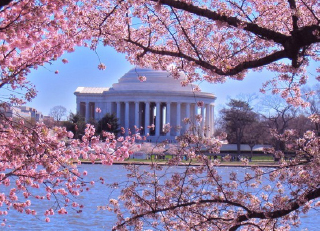
Cherry blossom weekend has just ended in Washington when the trees all around town and around the Thomas Jefferson Memorial and on the Mall by the Lincoln Memorial have been in full pink and white bloom. It is officially the beginning of spring. Washington shines at this time. After the endless snows of winter this year, we are all ready for spring. But are we ready in spring, 2015 for the campaigns to launch for the next 18 months? I am not. But there is nothing to do but settle in. And I can assure you from the heart of the U.S. political universe, it is underway. The volunteers and staffers and strategists are on their high stools, developing policy and campaign positions which will soon be on the air waves. The U.S. Presidential political season has arrived. Alas.
PEN Pregunta: Corruption, Violence, Impunity: What Can Writers Do?
PEN International and its Latin American and North American PEN Centers gathered this past week in Central America and in Mexico City for the third PEN Americas Summit to address the challenges to freedom of expression and the crimes against writers. The region, in particular Mexico, is one of the most dangerous in the world for writers and journalists who are killed, disappeared, attacked and threatened with virtual impunity.
In Mexico over 100 journalists have been murdered since 2000; 25 have been forcibly disappeared and hundreds are attacked and threatened each year while their attackers remain free.
During the Summit PEN identified the structural issues impeding freedom of expression, including the weakness within the Office of the Special Prosecutor for Crimes Against Freedom of Expression, the use of criminal defamation laws, the barriers to entry and lack of diversification within the Mexican news media, the close relationship between much of the media and the Mexican government and the manipulation of advertising payments from the government to media as a reward for positive coverage.
Developing recommendations, PEN officials followed up by meeting with government ministers. Most important the writers in the region will follow up with each other advancing the narrative in their countries which included Argentina, Brazil, Guatemala, Haiti, Honduras, Mexico, Nicaragua, Canada, and the U.S
The Summit ended in Mexico City with a public Pregunta,—a brief statement and question from each of the participants to generate discussion.
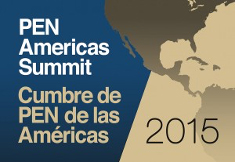 Question: What can a gathering of writers do in the face of killings, disappearances and attacks on journalists in Mexico?
Question: What can a gathering of writers do in the face of killings, disappearances and attacks on journalists in Mexico?
Writers’ tools are words and narrative. The narrative in Mexico has deteriorated with journalists and writers attacked at a rate of almost one a day and many killed while their attackers live with impunity. What can a room of writers do? We can begin by helping change the narrative.
PEN was founded by writers in Europe after World War I who wanted to charge the narrative of nationalism that had led to that war.
In my years working in PEN, I have witnessed societies change and freedoms expand, in part because writers and journalists advanced the narrative of the individual’s right to free expression, the right to imagine different societies and to live without fear.
When I began in PEN, South Korea had prisons filled with writers. That is no longer the case. Czechoslovakia had major writers in prison as did most of Eastern Europe. Societies can change. Writers can help lead the way inspiring and re-imagining the narrative until it becomes reality.
Today much discussion is about the brutality of ISIS. The brutality—the beheadings, murders, disappearances—that are happening in Mexico are not a global focus. Today we can witness and bring focus and help re-imagine the outcome.
Question: What can writers do in the face of killings, disappearances and attacks on journalists? Please share your ideas below.
Times and Tides
Anniversaries abounded this past week:
—November 11: The hundredth anniversary of World War I was perhaps the most significant. Since I wasn’t alive then, I have no personal memories, but I have an appreciation of its significance in all the years that followed and influenced my life. I also appreciate the misreading and historic mistakes that led so much of the world to war.
—November 9: The twenty-fifth anniversary of the fall of the Berlin Wall—I was around for that. A few months afterwards our family moved to Europe, and I took my children to East Berlin where we walked across Checkpoint Charlie and knocked down the wall ourselves. We still have a bag of the concrete from the wall in a cabinet in our home; the most artistic slabs with colored graffiti we mounted under plexiglas and shared with friends.
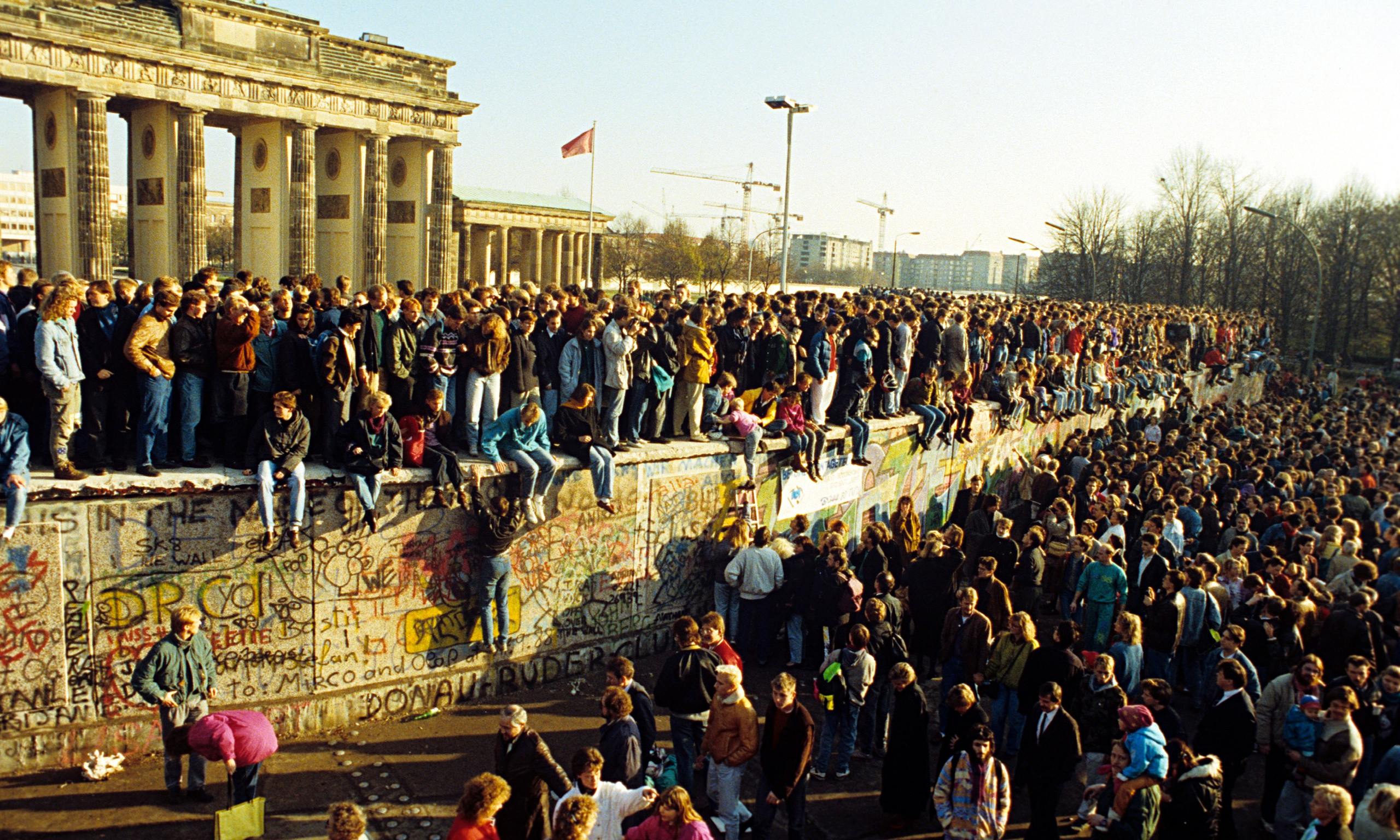
—November 8: The tenth anniversary of the second Battle of Fallujah is very personal. We had a son at the front of that battle who survived and is still processing the impact on him and his friends and the country. He has developed into a beautiful writer who tells and has published his own essays and stories. His first novel Green on Blue will be published by Scribner’s this February. Not noted as widely at the time ten years ago were the battles of the civil war in the Ivory Coast. During the Battle of Fallujah I was with African PEN centers in Dakar, Senegal planning a PEN Congress. The headlines on the front pages there were from the Ivory Coast, not Iraq. My heart at the time was stretched across continents. In quiet moments I can still feel…or is it hear?…this beating of the heart.
—And finally this fall celebrated the fiftieth anniversary of my own high school graduation—an unexpected gathering of friends, most of whom I hadn’t seen in a quarter and some in half a century. We found the friendship and goodwill were what had lasted, had roots and still flourished among us.
This flowering and expanding of life and the heart is what I take away. The walls that fall between us are still challenged by the battles fought among us. History repeats or teaches. There are no simple lessons, but to the extent we find ways to break down the walls and end the battles, we hope. Hope after all is still a threshold of history.
PEN on the Plains of Central Asia
PEN International’s 80th Congress opened with galloping horses across the majestic plains of Central Asia’s Kyrgyzstan this past week when the 200 plus delegates from 73 PEN centers around the world encountered “Kurmanjan Datka: Queen of the Mountains” the epic new film featuring Kyrgyzstan’s national heroine. The cinematically stunning drama spanned the late18th to 19th century when the modern nation formed, led by a woman—wife, widow and mother—in a time when women had no rights, when enemies threatened on all sides. The drama ended with Russia’s annexation of the region.
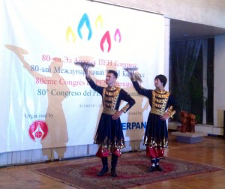
A hundred years later PEN delegates gathered in Bishkek for PEN’s annual Congress whose theme My language, my story, my freedom included discussion, debate and advocacy on issues of free expression. PEN called for release of Uzbek writer Azinjon Askarov from a Kyrgyz prison, Vladimir Kozlov from Kazak prison and Ilham Tohti, who was recently given a life sentence in China for alleged “separatism.” These three individuals were featured with empty chairs at the Congress and represented the more than 900 writers, journalists, publishers, editors and bloggers listed in PEN’s case list and for whom PEN advocates.
Kyrgyzstan is considered the freest of the Central Asian republics of the former Soviet Union, the only republic that could have hosted a PEN Congress, but it is still challenged with ethnic conflicts and with repression of certain minorities, including those from the LGBT communities. The influence of the Russian Federation, including its Law of False Accusation and criminal defamation and laws against “gay propaganda,” the influence of radical Islam and ethnic conflicts affect free expression in the country, according to Marian Botsford Fraser, the Chair of PEN International’s Writers in Prison Committee.
Before the Congress, PEN International’s President John Ralston Saul and a delegation visited neighboring Kazakhstan and met with the President’s office there to present PEN’s concerns, especially for imprisoned writers Vladimir Kozlov and Aron Atabek. In Bishkek a delegation met with the President of Kyrgyzstan on PEN’s issues and with the federal Prosecutor on the case of Azinjon Askarov.
PEN held panels and discussions on LGBTQI rights, on surveillance, on criminal defamation, and on linguistitic rights. Resolutions on free expression and the cases of imprisoned and threatened writers were passed relating to Azerbaijan, China, Tibet, Cuba, Ethiopia, Eritrea, Honduras, Iran, Iraq, Kyrgyzstan, Mexico, North Korea, Russia, Syria, Turkey, Ukraine, and Vietnam.
PEN voted in four new centers—Liberia, Honduras, Wales, and an Eritrean center in exile, whose member reported on the many writers who are in prison and who have died there, bringing the total number of centers to 147 around the world.
In the capitol of Bishkek galloping horses are now replaced by ever present taxis—used cars from Europe and Japan with steering wheels on both the left and the right hand sides. Monuments and buildings from the Soviet era are strained with wear though guards still goose step around their peripheries. Members of Central Asian PEN welcomed the delegates with hospitality, with literature, with traditional songs and dance, with modern cinema about the past and with a hope of embracing broader freedoms in the future.
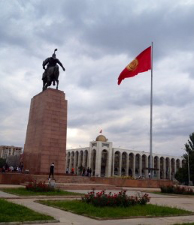
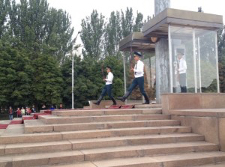
Boston on a Sunday Afternoon
The sun is shining. The swan boats are cruising on the pond in the Boston Commons. Joggers are jogging along the park. Children are running after ducks; parents are running after children. University students have returned en mass from summer so the hum of young people hums in Boston and its neighboring city of Cambridge, ever the student’s town. People from all backgrounds, speaking Spanish, Vietnamese, Arabic, French, Russian and languages I don’t recognize pass by as I sit on a park bench.
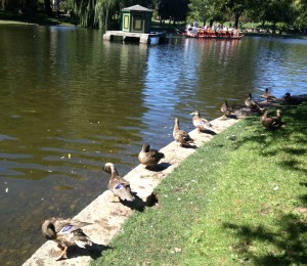
For a moment I don’t want to think about ISIS or terrorists’ attacks or the beheadings of writers, who are friends of people I know, writers and their families whom I can’t help but think about and want to honor, or to think about those who must decide what our country does next or those who will take the risk to do it.
All this is on my mind and on the minds of people in Washington where I live. But for a moment I look out and take a breath and watch Boston on a Sunday afternoon before the world accelerates, a few days before we mark again the events of 9/11. I want to savor and remember this moment just for a moment. It is the point after all.
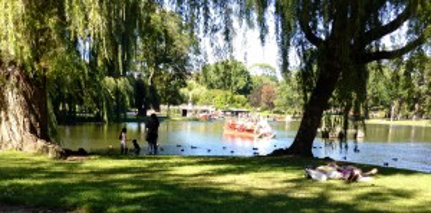
Poets, Pardons and Ramadan
(This piece appears on GlobalPost.)
Eid—the end of Ramadan—has come and gone. Traditional pardons have been handed out. In Qatar, poet Mohammed al Ajami (Al-Dheeb), was not among them. He continues to live in a prison in the desert, serving a 15-year sentence for two poems, one praising the Arab Spring and the other critical of the Emir. He (and his poems) “encouraged an attempt to overthrow the regime,” according to the charges.
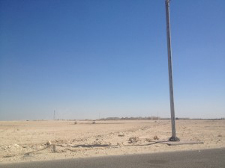
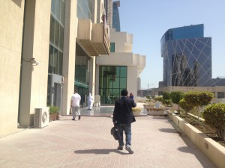
The over 70 pardons granted in Qatar are reported to have gone to Asian workers charged with theft, rape, drug abuse, bribery, prostitution, etc. These workers will now likely be deported. If Mohammed al Ajami were released, he would also likely leave the country to reunite with his family and then perhaps accept a brief fellowship offered as a poet at a major university.
Throughout the Muslim world Ramadan is a time when dispensations are handed out— as many as 1000 prisoners reportedly released in Saudi Arabia, 800 plus in Dubai, over 350 in Egypt— to individuals charged with violent and nonviolent crimes. But the amnesties were not given to writers, not to poet al Ajami, not to Egyptian journalists or Iranian bloggers. The offense of words and ideas are perhaps judged more dangerous.
Writers in prison in the Middle East who did not get pardons include: Bahrain (3writers), Egypt (5 writers), Iran (35 writers), Qatar (1 writer), Saudi Arabia (2 writers), Syria (11 writers), Tunisia (1 writer), United Arab Emirates (2 writers). *
*Source PEN International
In Qatar, calls for release of prisoners come with the start of Ramadan
(This piece appears on GlobalPost.)
Commentary: The release of one imprisoned poet during Ramadan may seem a small act, but would be a significant humanitarian act toward a more enlightened state.

Muslim men perform the Eid Al-Fitr morning prayers outside the Ali Bin Ali mosque in Doha on September 30, 2008. Eid al-Fitr festivities marking the end of the Muslim holy fasting month of Ramadan are celebrated starting today in most of the Middle East countries. (KARIM JAAFAR/AFP/Getty Images)
I am not a Muslim, but I am focused on the arrival of Ramadan this year. The month-long observance began this weekend for 1.6 billion Muslims around the world. A time of fasting, increased prayer and charity, Ramadan is also a time when governments of Islamic countries grant amnesties to citizens and to those in prison.
Ramadan, the ninth month in the Islamic calendar, observes the time when Muhammad, a caravan trader wandering the desert near Mecca contemplating his faith, is said to have been called to receive the word of Allah. The revelation was eventually transcribed as the verses of the Qur’an.
The reconciliation of this holy time with political dispensations varies according to countries and their leaders. My focus is on the country of Qatar and the particular case of a poet in prison. Qatar has been in the news lately as the recipient of the five Guantanamo detainees. This transaction has taken the headlines.
But also in prison in Qatar is poet Mohammed Al Ajami, who has spent more than two years in solitary confinement for two poems. A father of four, Al Ajami is serving a 15-year sentence (reduced from life imprisonment) for poems criticizing the Emir and supporting the Arab Spring. One of the poems was read in a private reading in his apartment in Cairo, but was secretly taped by a fellow poet and uploaded on YouTube. Al Ajami was eventually charged a year and a half later with “encouraging an attempt to overthrow the existing regime.”
Al Ajami grew up as a friend in the household of the Emir’s grandfather, but he has refused to apologize for his poetry, and thus he continues to live behind bars. There is no legal recourse left to him. The only recourse is an amnesty or pardon by the current Emir. Should Al Ajami be released there are appointments he might have as a poet abroad.
The tradition of amnesties during Ramadan include last year’s release of 14 Nepalese in Qatar, three Britons jailed in Dubai, 65 prisoners in Gaza, , 82 Egyptians released in 2012 from Saudi Arabian jails. In a time when Qatar is facing criticism for its migrant domestic workers’ conditions, a time when Qatar is bidding for international conferences and facing controversy over its 2022 hosting of the World Cup, the release of one poet during Ramadan seems a small, but significant and humanitarian, act, an act which would evidence a more enlightened state to many who are looking for enlightenment in that region of the world.
Mohammed al-Ajami is an honorary member of PEN American Center. Joanne Leedom-Ackerman, a former reporter for the Christian Science Monitor, is a Vice President of PEN International and PEN American Center.
Tunisia could be the first Arab Spring success. But it’s not there yet.
Tunisia has many advantages that set it up well for progress. But the country’s future will not be assured without international support. It must fortify a weak economy, combat crime and terrorism, and continue government reforms.
By Joanne Leedom-Ackerman, Op-ed published in The Christian Science Monitor, May 27, 2014
Tunis, Tunisia
In Roman times wild animals paced beneath Tunisia’s El Jem colosseum, ready to spring into mortal combat with gladiators – usually slaves fighting for their lives and sometimes freedom – as an audience looked on. Recently I paced the floor of this same amphitheater, trying to imagine its history – and future.

Today, Tunisia is engaged in its own struggle for the life of its new democracy. Though a small country – 64,000 square miles with 11 million people – Tunisia is vital to regional stability. Now this ancient North African country where the Arab Spring began is poised to become the first success in the region – but only if it can shore up a weak economy, curb the dual threats of terrorism and crime, and continue needed government reforms.
Three years after a young street vendor set himself on fire to protest the authorities’ harassment and corruption, three years after the citizens rose up and ejected their longtime autocratic leader, Tunisia has laid the groundwork for its future. In January, the citizenry adopted a new Constitution that was widely debated and passed with the votes of more than 90 percent of the Constituent Assembly. All sectors endorse and are proud of the forward-leaning Constitution, which balances the secular and religious and is looked at as a model for the region.
As a further mark of progress, the Assembly recently passed a law establishing a judicial body to determine the constitutionality of new laws. It will be replaced by a new constitutional court after the next election. This opens the way now for the Assembly to pass a law to set up elections, which are anticipated this year.
Many donors and investors, particularly in the West and in the Gulf, are awaiting these elections before they commit further aid. Citizens are hoping the partisanship that divided the country after the revolution won’t reemerge. As one trade union leader told me, this frustration helped pave the way for the new government: “Technocrats were accepted as an interim government because people were fed up with political parties.”
A Marshall Plan for Tunisia
Still, large challenges lie ahead for Tunisia. The greatest is the economy, which remains state-controlled and relies on large subsidies it can’t afford. Some say the country is on the brink of bankruptcy. Interim Prime Minister Mehdi Jomaa visited the United States and the Gulf in April looking for financial assistance, including loan guarantees.
Mr. Jomaa has agreed with institutions such as the International Monetary Fund that the subsidy programs must be cut back or ended, but there are political and societal costs when prices on energy and food suddenly rise and government employment decreases. Unemployment is already more than 15 percent and as much as 40 percent among youth. In a show of good faith, President Moncef Marzouki recently announced he is taking a two-thirds pay cut.
But Tunisia’s future will not be assured without international support. As Mustapha Ben Jaafar, president of the Constituent Assembly, said to me and a small gathering of international observers: “We need a Marshall Plan for Tunisia and the Maghreb.”
The threat of terrorism
Another threat to Tunisia’s progress is terrorism, along with weapons flows and black market smuggling across the borders of neighboring Algeria and Libya.
“Gangsters control weapons and drug traffic,” Sihem Bensedrine, a prominent journalist and human rights activist, told me. She explained the context that gives rise to violence and illicit activity. “We don’t want to give religious cover to jihadists who are really criminals. The violence is created by poverty. There is a generation of young people marginalized. The state doesn’t have money. The money is in the gray economy, which some say is 60 percent of the economy.”
In order to curb the threat of violent extremism and its links to crime, Tunisia must continue to address the poverty and disillusionment that fuel it. Economic reforms and foreign aid to support economic growth are thus doubly important to Tunisia’s future.
Out with the old
Tunisia must also dismantle and reform the structures of the old dictatorship, including the police and the Ministry of the Interior. Close observers say that the success of the country’s democratic transition depends on the government’s ability to decentralize as well.
The concentration of government at the national level has bred corruption. As Ms. Bensedrine put it: “As long as [the] administration is centralized, it gets many privileges.” Decentralization (establishing more empowered regional governments) has been enshrined in the new Constitution to allow a more equitable distribution of revenue and governance.
“The country has long been divided by its coastal wealth and poorer interior,” former Prime Minister Hamadi Jebali explained to me and our small group of international visitors. Some legislators are thus looking to redraw regions so each includes both coastal and interior areas.
Reasons to hope
In spite of the challenges it faces, Tunisia has many advantages that set it up well for progress. For one, it has an educated population (both women and men) and has a 90 percent literacy rate. Women also hold key positions in the public and private workforce.
In addition, Tunisia’s proximity to Europe (geographically, culturally, and historically) facilitates exports and manufacturing. Tunisia also offers a historical bridge between Islam and secularism, one that has played a key role in its democratic transition – and will help it maintain international support going forward.
As I stood in Tunisia’s famous amphitheater (the setting for the movie “Gladiator”), two things were clear to me: The beasts of poverty, terrorism, and criminality wait just beneath the surface to destroy Tunisia’s democratic dream. But Tunisia is also poised to show that more-benevolent and more-moderate forces, including the citizens’ own determination to have democracy, can prevail.
We – the international community – are the spectators in this great match. But we cannot just sit in the audience and watch. For the sake of Tunisia – and the region – the world must engage and support Tunisia’s economic and political progress. As one local governor told me, “We are determined to succeed with a democratic state. We will not go back!”
Joanne Leedom-Ackerman visited political, business, and civil society leaders in Tunisia as part of a recent trip with the International Crisis Group, of which she is a board member. Ms. Leedom-Ackerman is also a former reporter for the Monitor.
This piece was originally published by The Christian Science Monitor and was republished by Gulf News.
Women’s Progress: The Power of a Bridge…and a Double Yellow Line
(Below is an abridged version of a talk I gave at Johns Hopkins University on Women’s Day, March 8 to an audience of vibrant students gathered for a day-long Summit for Emerging Women Leaders, sponsored by the Women’s Initiative for Social Equity.)
I arrived at Johns Hopkins as a graduate student in the Writing Seminars straight from a small college in the Midwest with a combination of confidence and concern that Hopkins had made a mistake admitting me. I was sure the other students would be more widely read and experienced. I spent the whole spring and summer when I wasn’t working, reading. That fall at Hopkins I was assigned the very first seminar paper focused on a controversial novel at the time The Confessions of Nat Turner by William Styron. The controversy arose around whether a white novelist could or should take on the first person narrative voice of a slave. I’ll get to my answer later in this talk. I got an A on the paper and knew I was going to be all right. Hopkins let me know I could meet the challenge. That was my first lesson.
When I arrived on campus, there were no women undergraduates. At the time my social conscience was focused more on civil rights than women’s rights so while the role of women in the larger society concerned me, I think I viewed the ratio at Hopkins as a social advantage. But here comes my next big lesson. When I had a disappointment on the romantic front and was feeling low, a voice in my head challenged: “If you have time to mope about, you have time to reach out and help someone!” That voice was not echoing my parents; they would be kinder. It was my own voice taking me to task, and so I listened.
I went to the Hopkins Tutoring office and signed up to tutor in the community. I was assigned a family who lived in West Baltimore and later moved to the projects on Druid Hill Ave. One evening a week I drove over to their house and tutored the mother of five children, ages 4-12. She only had an eighth grade education and wanted to read better. I also helped the children with their homework. The 10-year old daughter and I shared the same birthday. I tell you that because I’m still in touch with this family, and recently when the mother and I were talking on the phone after that birthday had passed, she asked me: “Do you know how old I am?” And I answered, yes, you’re ten years older than me and your daughter is ten years younger, and none of us should be counting anymore.” We both laughed. Three of those children went on and graduated from college and the oldest son finished high school and is a grandfather himself now. One of the treasures of my time at Hopkins was getting to know this family and having them part of my life over the years though we don’t see each other as much lately. My Hopkins education opened worlds to me of all kinds, showing me I would be okay in the larger intellectual world as well as in the inner city of Baltimore.
When I arrived at Hopkins, I thought I was entering a two-year program only to find out I would have a Master of Arts in nine months and had to get a job. No one hired aspiring novelists, but during college I’d been editor of the campus newspaper and each summer worked as a journalist so I applied to a leading international newspaper The Christian Science Monitor in Boston where I’d published a few articles. When the editor-in-chief met with me, he opened the interview, “I hear you were a thorn in the side of your college.” After I explained the issues I’d written about—the need to recruit minority students, the rights of workers on campus, removal of restrictions on women, protests abroad against the Vietnam War—he said, “You’re hired!”
But I was not hired to start tracking down important news stories but to be a copy kid. A copy kid in those days was the person who ran copy between departments—this is before the internet—and generally was at the beck and call of editors to do whatever they needed including getting them coffee and when work was slow filling the rubber cement jars because back then the pages of a news story were typed and then glued together in one long streamer and dropped in the copy editor’s box. But I’m a writer, I wanted to protest. I have a masters from Johns Hopkins University! The editor saw the disappointment on my face and added, if you show us what you can do, you’ll get promoted to reporter. So I took the job.
Here is the third important lesson which includes advice from my father: Don’t worry where you start in a job, just get to the place you want to be with smart people around you, and you’ll learn and rise to your level of excellence.
I spent every minute when I wasn’t transporting copy or coffee working on my own stories…in the evenings, every weekend. After a month I handed in a four-part series on Cambridge housing, examining the causes, effects, and solutions to what I had identified as a problem. The New England news editor accepted the four long stories, put them on his pile of stories to read, and that was that. I don’t recall how long it took him to read them. They never ran in the newspaper. I now realize how unlikely it was the paper would give space to a four-part series on such a local issue. But after seven long weeks, I was promoted to reporter.
Looking back, I can see that the editors were evaluating how hard I would work, how honed my skills were and perhaps whether I had the humility to do what was needed in a newsroom. Actually I don’t know if they were evaluating humility, but that was another important lesson for me. The experience deepened my appreciation of everyone around me, including those who cleaned up the newsroom at night when I was still working, those who set the type, those who delivered supplies. I appreciated that not everyone had his dream job.
The journalist’s mantra is: who, what, when, where, why, and how. These are the questions all journalists try to answer in their stories. In one’s own life I think the most important of those questions is who. What you do, where you do it, and when may be influenced, sometimes even dictated, by the actions of others, but no one can dictate who you are. You are responsible for the values and qualities of character you bring to the world. These will open doors for you.
I’ll end my career journey here, addressing the early years where most of you are. I broadened my work as a writer, expanding from journalism into fiction. Over the years I’ve also had many opportunities to go into the world to work on issues of human rights, education and refugees.
A number of years ago I attended an international conference on human rights in Katmandu, Nepal. On the flight there, the airplane suddenly lost altitude and then dropped again. The clouds were so thick that it looked as if we were flying through cotton wool as the rain and wind hit and shook the airplane. Around us, though we couldn’t see them anymore, rose the ranges of the Himalayas. The captain ordered all passengers and flight attendants to take their seats immediately and fasten their seat belts. I found myself hoping that the captain, whom I had never met or even seen — but in whose hands I’d put myself — had been trained well and had taken his training and his subsequent flying very seriously. I hoped that he had studied hard, hadn’t cut corners, and didn’t perform at 80 percent of capacity when the highest performance was now required of him. I also hoped those on the ground who maintained this plane had taken their tasks — even the smallest — just as seriously. The plane diverted to Delhi, and we waited out the storm on the runway, then finally landed in Katmandu.
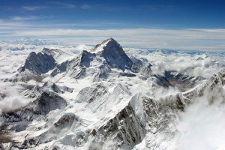
A similar, though less harrowing, journey occurred just a few weeks ago when I was driving over the Chesapeake Bay Bridge in a fog so heavy that I could see only a few feet in front of me. I was surprised the bridge was open. All I could see was a foot or two of a double yellow line. I trusted that the architects and builders had constructed a sturdy bridge, but most of all I trusted that line, that it would keep me on the path, that whoever painted it—and that may not have been his or her dream job at the time—executed it accurately, and it would not veer off to the edge or into other lanes of traffic.

Over the years I’ve been outspoken and advocated for women’s voices in all the venues where I’ve worked. But today I also want to emphasize that each task in our lives is important even when we don’t find ourselves at the pinnacle of where we would like to be. That doesn’t mean we don’t continue to work hard, strive, advocate, even protest, but our journeys are formed by the dedication we bring to each activity, even if, at the time, we may not see how the activity links to a greater plan and purpose.
As a writer I’ve worked with an organization called PEN International on behalf of writers who have found themselves threatened or imprisoned, or who have disappeared or even been killed because of their ideas and their writing. The work has involved some heart-breaking stories, but it has also involved stories of real courage. Many of the individuals survived because they refused to yield to the harsh realities they found themselves in. Instead they dwelled in their imaginations, and they held to their inner dignity.
I’ve also had the privilege over the years of being engaged with education projects in some of the more problematic regions of the world, visiting school rooms where the learning materials are hung from the ceilings of the huts which have no doors so the cattle who wander in and out don’t trample them, school rooms under trees. The mothers and fathers of the children in these schools sacrifice so their children can learn and have a fuller future.
Recently I visited refugee centers and camps in the four countries—Iraq, Jordan, Lebanon and Turkey—bordering Syria where the refugee crisis is the largest in a generation. As many as three to four million people are expected to have fled Syria by year’s end because of the violence of the three-year old civil war. The flood of people into countries which have their own problems seems overwhelming.
What can one person do in any of these challenges? Individually, a limited amount—witness, tell the story—but collectively we are all citizens of the world, and that world is a function of how we behave and also how we think about it and act towards our fellow citizens.
–Are we up to the task? Hopkins taught me, yes, I am.
–Does the plight of the world depress—yes, it can, but I learned at Hopkins that if I have time to be depressed, then I also have time to get up and reach out.
–Is what we do important enough to make a difference? Maybe. It can be. But whatever path or avenue opens, we can act with vigor and integrity—whether flying the airplane or tightening the screw on the wheel, whether designing the bridge or painting the line on its road. Whatever the task, others will depend on how well we do it. The question is do we have the courage and also the humility to do it with a full heart? I think the answer is yes.
My answer on that seminar paper years ago was also yes. A novelist should/could take on a voice very different from his or her own. That is what artists do. But success depends upon how well and carefully one listens and observes and empathizes with those who are not oneself.
In my generation the rights of minorities and women and others expanded significantly, at least in the U.S. My final observation today is: Society can change for the better and you can be part of that.
Syrian Refugee Tsunami
We’d come to visit a Syrian refugee camp on the Turkish border. When we arrived in Gaziantep, a bustling ancient city just 30 miles from Syria, we were told by United Nations representatives that a battle was going on across the border that day. A bullet had struck a house in the nearby refugee camp so our visit was canceled for security reasons.
The following day a fuller story emerged. In the Syrian town of Jarabulus just 3km over the border, the battle had been especially brutal. At least 10 men were beheaded and their heads mounted on spikes to terrorize the community. The Syrians from the town were now fleeing to Turkey and away from the al Qaeda-linked fighters.
This particularly grisly battle underscores the horror and tragedy facing the almost nine million Syrians (6.5 million in country; at least 2.3 million outside the country) seeking security. Aid agencies estimate at least half the Syrian population of 22.4 million is in need of humanitarian assistance, and as many as three quarters of the population will be in need of aid by the end of 2014.
In the past two months I’ve visited Iraq, Jordan, Lebanon and Turkey—the four main countries absorbing this historic exodus from the three-year old Syrian civil war and have witnessed a human tsunami. Acknowledged as the worst refugee crisis in a generation, the outflow of Syrian citizens mounted a 500% increase in many areas in the past year, a figure threatening to explode further in 2014 if no progress is made in the current peace talks getting underway in Geneva. Small corridors of security for exiting women and children as recently proposed for the city of Homs will add to the momentum of the exodus.
Each of the bordering countries has responded differently to the crisis. All have opened their borders, at least the first two years. The United Nations High Commission on Refugees (UNHCR) has fanned out across the region to assist according to each country’s mandate, with aid and aid workers in their sky blue vests arranging registration, locating or establishing shelters, food, medical care and education and coordinating with other nongovernmental organizations (ngos), but few have experienced a crisis of this magnitude.
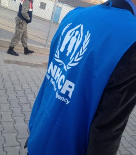
I recently returned from Turkey and Lebanon, both of whose borders are still open.
Turkey has officially registered more than half a million refugees and given one-year residency permits, but many more refugees are estimated within Turkish borders and the permits are already expiring. The government has built and manages state-of-the art camps, having spent $2 billion for 20 camps along the border. These include both tented camps and camps with temporary container housing. The camps include classrooms, play areas, meeting areas, libraries, TV rooms, even rooms of washing machines in the two Nizip camps we visited. The camps are at a standard not seen before, according to one UNHCR official. However, because the camps were established by the Turkish government, not the UN, they are much closer to the border than is standard.
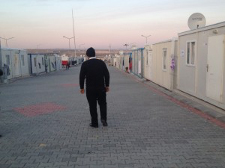
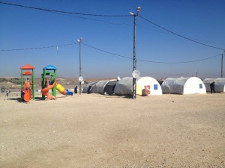
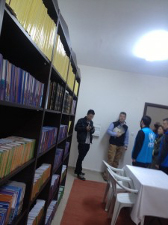
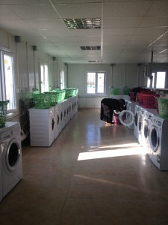
Within the camps are schools with a Syrian curriculum, overseen by the Syrian National Council, a coalition of Syrian opposition groups based in Istanbul, which has expunged Assad from the textbooks and republishes the textbooks and provides books to the schools. The brightly colored school rooms are largely staffed by Syrian teacher refugees in the camps. Camp officials claim between 70-90% enrollment.
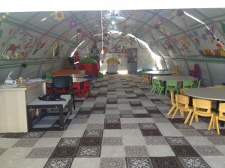
According to Karim Atassi, the UNHCR Deputy Representative for the region, one Turkish official noted: If we don’t carefully look after the Syrians gathering in Turkey (especially the young), they will be a time bomb for us. The Turkish government consults with UNHCR, which is recommending that the government certify the Syrian curriculum and education this year so students can get credit and certification for their education.
Approximately 250 Syrian students, who have taken Turkish language classes and passed the TOFEL language test, have been given university scholarships. “Turkey has helped us a lot,” said one student, a young man set to study economics. He and his four friends in the refugee camp who also received scholarships had been in university in Syria but now must start all over again in a new field, because there was no space in their former fields of study. They were not certain whether the scholarships included a living stipend. Several of the students were married and had families, but they count themselves among the lucky. Sitting with them was a slightly older student of 27 who wanted to finish his study of law, which he had almost completed in Syria, but he had not received a university scholarship.
The challenge in Turkey and in the other countries is that only a third of the refugees live in camps. The rest—between 300,000 up to 700,000 in Turkey—live in the cities and villages and don’t have access to the same services. In all the countries the urban and unregistered are the biggest challenge and the ticking time bomb.
Lebanon, whose borders also remain open, has not provided nor allowed provision for official refugee camps or shelters lest the refugees “be tempted to stay.” Proportionate to its size, Lebanon has absorbed the largest share of the refugee population.
“In September, 2011 U.S. Secretary Clinton said to us, ‘Don’t worry. Accept the people from Syria, and we will help you,” said acting Prime Minister Najib Azmi Mikati, in a meeting at his residence in Beirut. “At the time there were 10,000 refugees. We said, ‘Never mind, we can handle it. Now there are more than 900,000 refugees in Lebanon, a country of four million people. They represent over 20 percent of our population. It may even be more. Some estimates are as much as 1.3 million.”
In Lebanon refugees are registered by UNHCR and then receive services and assistance with food, medicine and rent. Some have been able to find apartments; many have landed in temporary shelter, including at an abandoned shopping mall in Tripoli or in shacks at a cement factory in the southern city of Saida, where they work for rent, or at a Palestinian refugee camp in Beirut.
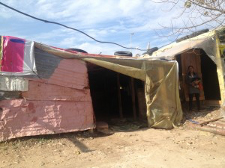
At least 75% percent of the refugees are women and children in all countries. After shelter and food is found, one of the biggest challenges is education for the children. That and long, idle days of waiting…waiting for husbands to find work, for relatives to get out of danger and arrive…and most of all waiting for the war to stop so they can go home. At a point, and that point has long passed for many, the waiting becomes a way of life, corrosive to the spirit. How does one fill one’s days and one’s children’s days when there is no work and no school, asked one woman.
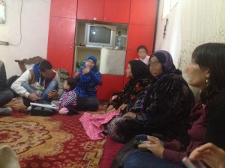
At one gathering of women in an abandoned shopping mall in Tripoli, Zaira, a mother of four sons ages 7 to 13 said all her children had been in school in Syria, but in Lebanon, there is no available school nearby. What will happen to their education? she asked. Many of the refugee children have missed one or two years of school already.
UNHCR and ngo’s offer some transportation to schools if there is space, but in Lebanon 70% of the education is private and the 30% public schools are filled, even with second shifts. Refugees are also finding barriers of language since instruction in Lebanon is traditionally in English and French and only occasionally in Arabic.
UNHCR and the local ngos also offer vocational training such as hair dressing, computers, and sewing, but jobs are not assured after the training. Some men and older children refugees have found manual labor or part time agricultural work, but mostly the population waits.
In the abandoned shopping mall over 900 people live in the shells of stores that had never been finished. The 30 owners of the abandoned mall have returned and now collect rent. The advantage of the mall as shelter is that the walls are solid; there is a roof; electricity has been strung in. Laundry is hanging everywhere. There are no shops, except for one small candy store near the entrance and a small improvised vegetable/fruit stand, but there are dozens of satellite dishes. Even in the most improvised shelters refugees manage to find televisions to connect them to the outside world and sometimes back to home.
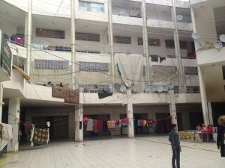
In one shop/residence women gathered sitting on the floor covered with a brightly colored mat and mattresses along the wall. One woman from Hamah shared her story while others nodded in agreement: “I left because of the constant bombing. We couldn’t leave the house even to buy bread. Before we left home to come here, we were internally displaced, moved from one place to another to avoid the shelling. My brother got killed. To get here we walked, rode a bike with our two boys and two girls, sometimes walking, sometimes biking. We left Hamah to Homs. It was easier to cross on the northern border. There are problems on the Syrian side of the border. The Syrians try to split families. It took us two days to get here. We brought nothing. We arrived with nothing. People here had extra mattresses and gave them to us. The biggest challenge is now rent. In Syria we were working as farmers [but we don’t work here].
“As the situation has gotten worse in Syria, we’ve been able to talk to a cousin but can’t talk to our parents. There’s no reception. First we went to Beirut for 27 days where we knew people. After that we came here because my sister-in-law lives in the area, and we stayed with her until we found out about the rooms here.”
Some estimate that by the end of 2014 the flow of refugees out of Syria could double with over 4 million total outside the country. Will the four buffer countries of Iraq, Jordan, Lebanon and Turkey be able to continue absorbing the refugees without severe destabilization of their own populations? While countries like the U.S. and countries in Western Europe have contributed financial aid, they have admitted only the tiniest trickle of refugees into their countries. Last year Germany admitted 5,000 Syrian refugees, and the Germans were among the more generous. The United States has accepted 90.
Those interested in learning more and in assisting in this crisis can contact among the following organizations: UNHCR, International Rescue Committee, International Committee of the Red Cross, Save The Children, Refugees International.